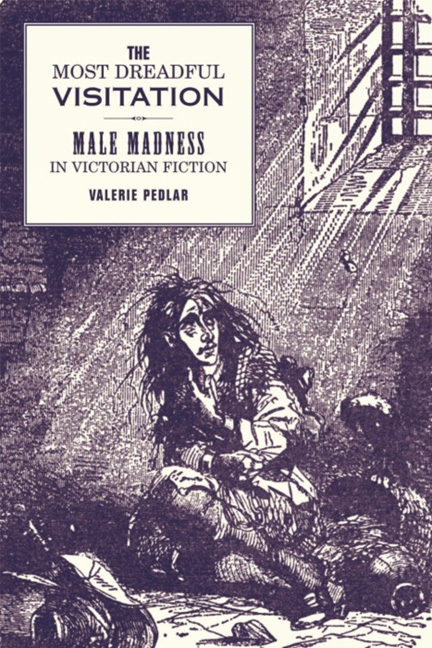Book contents
- Frontmatter
- Dedication
- Contents
- Acknowledgements
- Introduction
- 1 Insurrection and Imagination: Idiocy and Barnaby Rudge
- 2 Thwarted Lovers: Basil and Maud
- 3 Wrongful Confinement, Sensationalism and Hard Cash
- 4 Madness and Marriage
- 5 The Zoophagus Maniac: Madness and Degeneracy in Dracula
- Conclusion
- Bibliography
- Index
2 - Thwarted Lovers: Basil and Maud
- Frontmatter
- Dedication
- Contents
- Acknowledgements
- Introduction
- 1 Insurrection and Imagination: Idiocy and Barnaby Rudge
- 2 Thwarted Lovers: Basil and Maud
- 3 Wrongful Confinement, Sensationalism and Hard Cash
- 4 Madness and Marriage
- 5 The Zoophagus Maniac: Madness and Degeneracy in Dracula
- Conclusion
- Bibliography
- Index
Summary
And ah for a man to arise in me,
That the man I am may cease to be! (Maud I.X.vi)
And yet, the time was soon to arrive when that lost thought of inquiry into Mannion's fate, was to become the one master-thought that possessed me – the thought that gave back its vigilance to my intellect, and its manhood to my heart. (Basil, p. 178)
Both the despairing protagonist (significantly unnamed) of Tennyson's Maud and the eponymous protagonist of Wilkie Collins's Basil are acutely aware of their shaky masculinity. Narrated with the particular intensity and intimacy of a first-person perspective, both novel and poem are able to convey vividly the psychic dimension of identity as well as the material circumstances of its construction. The two texts that form the basis for this chapter focus on young men who admire a woman from a distance, fall in love with her, find themselves fighting a rival, suffer a breakdown and finally, arguably, recover. As Helen Small has shown, madness resulting from disappointment in love is a theme that predominantly figures women in the role of the disappointed lover. This is as much as anything a matter of literary convention; there are no statistics to prove or disprove the fact that women were more likely than men to go mad when a love affair went wrong. The convention of the love-mad woman conforms to the idea of females as the weaker sex, the sex that is ruled by the heart rather than the head, the sex that is passive rather than active, the sex that lacks power. Paradoxically, as Small shows, when the love-forsaken woman turns mad, she is liberated and takes on a significance beyond that of the female stereotype. In the case of Basil and Maud, the situation is different; the disappointment in love is not simply to do with rejection, but with some sort of conflict with another man, and the mental breakdown is associated with the relationships that are formative in the search for masculinity.
Basil is an extraordinary story in which the younger son of a family of ancient lineage falls in love with a girl he sees on an omnibus. Some minor detective work enables him to discover that she is Margaret Sherwin, the daughter of a shop-keeper.
- Type
- Chapter
- Information
- The Most Dreadful VisitationMale Madness in Victorian Fiction, pp. 53 - 79Publisher: Liverpool University PressPrint publication year: 2006



